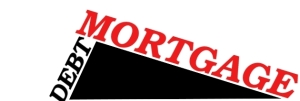If you are buying a home, it is important to know the details of your loan.
Whether you go with a conventional loan, FHA loan or a VA loan, there are different features that many loans offer.
The following are some features of a home loan:
- Fixed Rate – A mortgage with a fixed rate means your interest and mortgage payments remain the same, or “fixed”, through the entire loan. Typically the loans are for 15 to 30 years. A 15 year loan will obviously have higher monthly payments but you will end up saving more than half of the interest costs than a 30 year fixed loan and pay it off in half the time.
- Adjustable Rate – This type of mortgage is also known as an ARM. The interest rate on an ARM fluctuates during the entire life of the loan. Your interest rate will be modified based on a predetermined economic index established at the beginning of the loan. Most of the time a max is set on the interest rate to avoid enormous increases. An ARM is usually safe only if your budget can afford to handle fluctuating payments.
- Payment Option Adjustable Rate – This type of loan accommodates a households fluctuating cash flow which include minimum payment options, interest only payment options and others. You will want to thoroughly understand these types of loans because you need to make sure you are prepared for a sudden increase in payment.
- Balloon Rate – A balloon mortgage has a fixed rate but for a shorter term than 15 or 30 years. At the end of the balloon rate (the fixed rate), the borrower must pay the remaining lump sum or refinance. If the buyer is purchasing unimproved property that they plan to build on in less than ten years, a balloon mortgage may be a good option.
Talk to a lending professional to find out what the best type of loan for you is. We highly recommend knowing exactly what you are getting into when you apply for a home loan.
